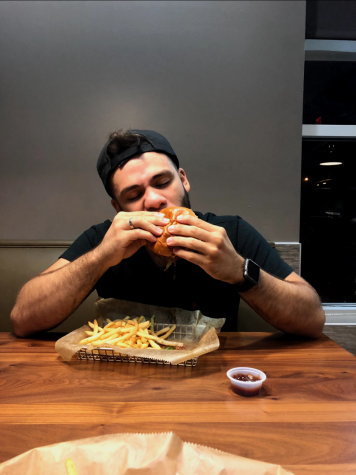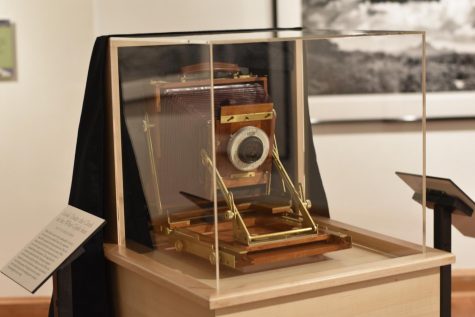Seeing is Belizing!
This summer, students of Professor Klee’s Tropical Ecosystems course: IDS-2159 took an 11 day trip as part of Hillsborough Community College’s study abroad initiative. The beginning of the endeavor took place in north-western Belize’s broadleaf forests, guided by Mr. Jorge Estrella for Programme for Belize.
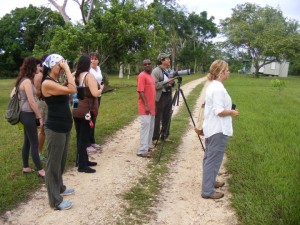
The first portion of the stay was at the Rio Bravo Conservation and Management Area Hillbank location. Students were given the opportunity to explore lowland ecosystems and learn about land management, such as carbon sequestration. The students also gained knowledge about the danger of deforestation and environmentalism as a whole. The program focuses on sustainable development using natural resources, therefore; students endured electricity restrictions and had virtually zero access to Wi-Fi. Calling card usage was available for the two land-line phones on the property and the site accommodated a natural air environment.
Most of the students were introduced to composting toilets for the first time, but say they would love to visit the site annually if only to simply enjoy nature and participate in conserving the environment.
In addition to the grade requirements, Professor Klee’s students took medicinal walks around Hillbank, crocodile spotted at night with the hopes of spotting a Jaguar or two during sunset, and participated in silent observations in the forest alone for 20 minutes. Perhaps one of the more favorable activities was that of the trek throughout the Mayan Ruins where the students hiked up the second largest Mayan monument in Belize (33 meters) on the trip to Lamanai.
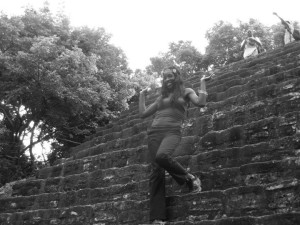
During the second half of the stay in Belize, H.C.C. students were introduced to the coral reef ecosystems at South Water Caye (key). The primary focus was of course Belize’s Barrier Reef. Though students participated in many marine exercises, the majority of the activities required swim gear and goggles. As Instructors Ivar Marchand and Javier Garcia were providing lessons on appropriate diving, they also familiarized students with mangrove conservation and preservation, the importance of good water quality, and informed students on how human activity can impede such quality. Amongst many other lessons, the focus of the coral reef exploration given by the knowledgeable guides gave an in depth presentation on the atoll system with influences on the patch and fore reefs. The lessons also noted how all living matter involved is beneficial to the survival of those bodies of water.
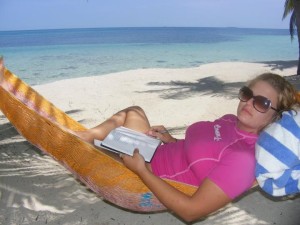
In the downtime of the latter half students enjoyed kayaking, explored marine habitats, discovered star fish, encountered Tiger sharks and participated in deep sea snorkeling which appeared to be a favorite amongst the aquatic experiences.
If you are interested in becoming a study abroad student you may contact the Center for International Education at the Dale Mabry Campus DSSC room 325 to get more information on courses, trips, location and costs. You may also visit hccfl.edu.






